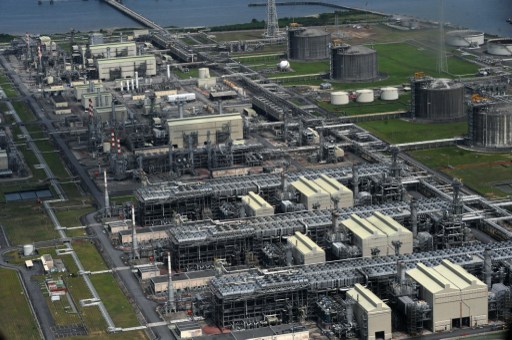
The Dangote Refinery, Fertilizer Plant and Petrochemical Company in Ibeju-Lekki, Lagos originally conceived to cost $9 billion is currently around $15 billion and will start full production first quarter of 2021.
The increase in cost resulted from currency adjustments and other value added that were not anticipated at inception.
The governor of Central Bank of Nigeria (CBN), Mr Godwin Emefiele, gave the update at the weekend when he visited and inspected the project.
The fertiliser component of the project costing $2 billion would commence production in May 2020 and would be the end of fertilizer importation into Nigeria.
The fertilizer plant will produce three million tons per annum and, 25 per cent of it will be used locally, while the other 75 per cent will be exported.
The second project is the refinery, which will be refining 650,000 barrels per day and will not only satisfy local consumption, but also position Nigeria as major exporter of petroleum products.
The refinery will serve the whole of Africa. This project is strategically positioned that it will only make the final cost of petrol within and outside Nigeria lower. Everything in Nigeria that has plastic will be produced from the plat and will satisfy not only domestic production but also for export,” Emefiele said.

Emefiele commended President of Dangote Group, Alhaji Aliko Dangote, for his determination and large heart to support the Nigerian economy through massive investments.
Emefiele said the CBN was ready and willing to support local and foreign investors as well as local and foreign entrepreneurs to explore investment opportunities in the country and also enjoy government protection.
“We want to support any foreigner or Nigerian that finds Nigeria as a good investment destination. We support the person through the banking sector and foreign exchange allocations.
Government stands ready to give them the needed protection and support they want.
“We should not wait for foreign investors to invest in the economy. We have to do it ourselves especially now that interest rates are dropping and banks are lending more to the economy. I encourage more entrepreneurs to gear up and borrow more to develop the economy.”
With the project, he explained that Nigeria would be the biggest urea exporting country in Africa.
“We expect to earn $2.5 billion annually from the projects and that will reduce foreign exchange pressure on the economy and that will be about 10 per cent of what Nigeria earns annually from diaspora remittances.”
According to him, these projects will make Nigeria the biggest exporter of petrochemical products in Africa.












